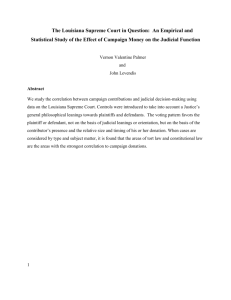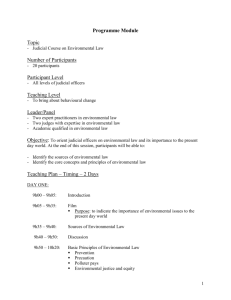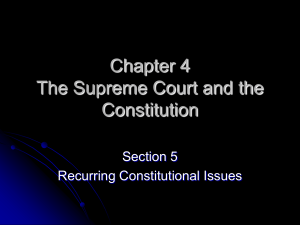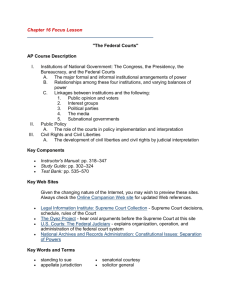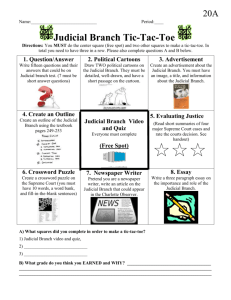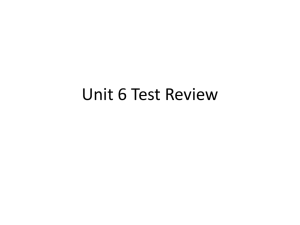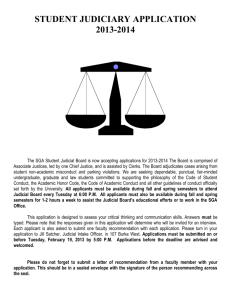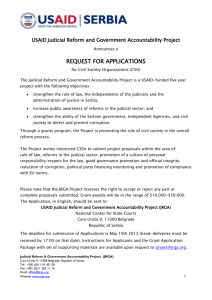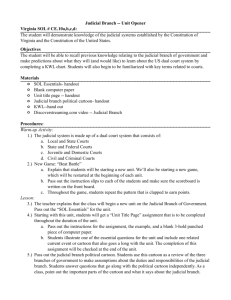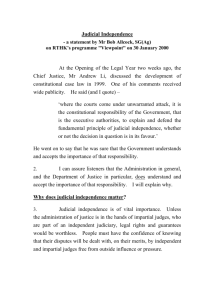THE JUDICIAL DEPARTMENT
advertisement
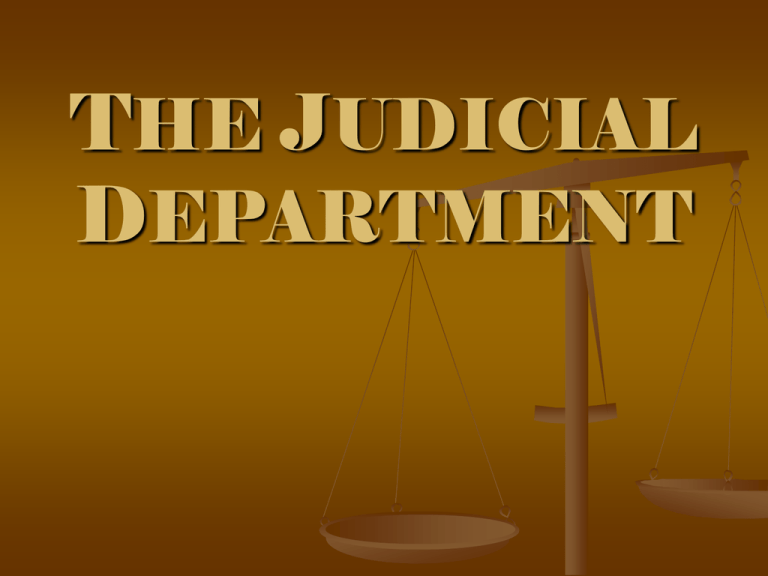
THE JUDICIAL DEPARTMENT Overview What is judicial power? What are the characteristics and scope of judicial power? What is the Supreme Court and what are its powers? What is the Judicial and Bar Council? What happens when a court decision is reached? The Judicial Department Article VIII, Section 1: Judicial power will be vested in the Supreme Court and all lower courts Judicial power: the power to apply the laws to contests or disputes concerning legally recognized rights Loosely, the judiciary refers to the court system Judicial Power Generally entails two activities: 1. Settling legal controversies 2. Determining whether there has been grave abuse of discretion amounting to lack or excess of jurisdiction by any branch of government Scope of Judicial Power Adjudicating The Power power to settle legal disputes Power of Judicial Review Refers to the power of the Supreme Court to interpret and make judgments with respect to the law Incidental Powers Powers necessary for the discharge of the judicial function The Supreme Court Composition 1 Chief Justice and 14 Associate Justices Sits en banc or in divisions Qualifications By appointment 40 years of age Natural born citizen Judge or legal practitioner for 15 years Powers of the Supreme Court SC has jurisdiction over: Cases involving ambassadors and public ministers Petitions for certiorari, mandamus, quo warranto, prohibition & habeas corpus Review Cases judgments of lower courts involving constitutionality, legality of any tax, reclusion perpetua and errors on questions of law Powers of the Supreme Court Assignment of judges to the lower courts Order a change of venue for a trial Promulgate rules of court Appoint officials of the judiciary and hire employees for the judicial branch Judicial and Bar Council Tasked with nominating appointees to the Judiciary (SC 3) Composition: Chief Justice Secretary of Justice Representative from Congress IBP Representative Prof. of law Private Sector Representative Rendering Court Decisions Once a decision is reached, a SC Justice is assigned to write an opinion The opinion is certified by the Chief Justice and served to the parties concerned Dissentions and abstentions must be explained The opinion must explain facts of law
